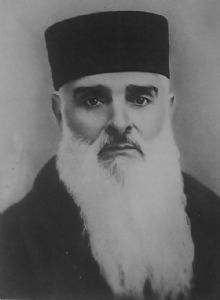A Short Tribute
Hacham Baruch Toledano was born in 1890 in Meknes, Morocco. His father, Abraham, was a wealthy man, and had as many books copied as he could. Although the library he established was in his own home, it served many other people.
Hacham Baruch Toledano studied in the Beit El Ve'Etz Haim yeshiva, founded by Rabbi Zeev Wolf Halperin.
In 1912, Hacham Baruch Toledano married Jamila, Hacham Pinchas Egozi's daughter, and the couple had four sons and a daughter. He served as a dayan in the Fes rabbinic court, with Hacham Raphael Baruch Toledano and Hacham Yosef Messas, from 1941.
Hacham Baruch Toledano wrote out the Orach Haim section of the Shulchan Aruch in rhyme, to make it popular with the public, who appreciated poetry. He wrote out the Even Ezer section in rhyme as well, as well, to help Beit Midrash students enjoy their studies.
Hacham Baruch Toledano immigrated to Israel and settled in Haifa. After his wife died, he went to live with his daughter, Gracia.
Hacham Baruch Toledano passed away on 4 Kislev, 5742 (1982). His published work includes Sha'alu Et Baruch – Responsa, Baruch Ta'am – on the Torah, Vayikra Baruch – on the books of Prophets, Vaya'as Baruch - sermons, poems and lamentations, and Rina U'Tefila – an abridged Shulchan Aruch Orach Haim, and laws of ritual slaughter.
